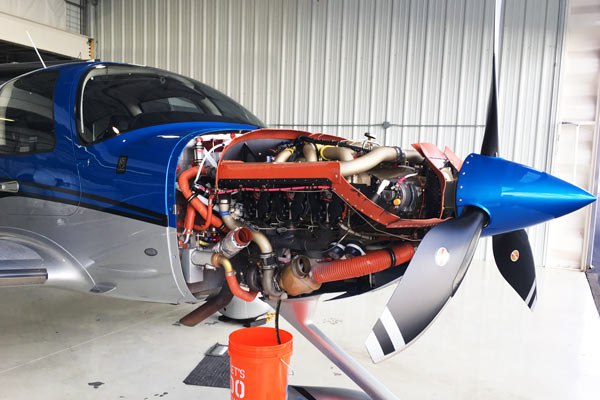How Proper Fluid Maintenance Enhances Aircraft Safety
Performing routine maintenance on fluids is an essential component of aircraft operation that has a direct bearing on safety. Fuel, oil, hydraulic fluids, and cooling fluids are just some of the specialized fluids that are essential to the proper operation of aircraft. To ensure that the aircraft works safely and dependably, it is vital to do the necessary maintenance on these fluids. When fluid maintenance is neglected, it can result in system failures, malfunctions, and catastrophic accidents. The following is a list of six ways that appropriate fluid maintenance contributes to increased airplane safety:
Prevention Of Contamination
The fluids used in aircraft are susceptible to contamination from a wide variety of sources, including water, debris, and dirt pollution. Engines, hydraulic systems, and fuel distribution systems are examples of important systems that can have their performance negatively impacted by the presence of contaminated fluids. Preventing contamination helps ensure that the aircraft functions smoothly and reliably. Regular monitoring and filtration of fluids are also helpful.
Optimized Performance
For the best possible performance of an airplane, it is vital to have fluids that are clean and well-maintained. For instance, fuel that is free of contaminants and clean assures that the engines will have effective combustion, which in turn maximizes both power output and fuel economy respectively. In a similar vein, engines that are thoroughly lubricated encounter less friction and wear, which results in a more seamless functioning and a longer lifespan for the components.
Early Detection Of Issues
Fluid checks can be performed on a regular basis since they offer the ability to identify any problems before they become risky to safety. For instance, irregular oil consumption may be an indication of engine leaks or excessive wear, whereas odd fuel use may be an indication of fuel system leaks or inefficiencies. Through the monitoring of fluid levels and properties, maintenance professionals are able to identify and handle any issues that may arise efficiently, hence preventing any breakdowns in important systems.
Mitigation of Fire Hazards
It is critical to reduce fire risks related to hydraulic fluids to guarantee airplane safety. Although hydraulic systems are essential for managing many aircraft operations, the flammability of hydraulic fluid makes spills or failures extremely dangerous. It is imperative to put mitigation measures in place for these risks.
For instance, Using fire-resistant hydraulic fluids (FRHF), such as Skydrol hydraulic fluid, which have a higher ignition point and are less likely to burn, is one strategy. Hydraulic systems require routine maintenance and inspection in order to identify possible leaks or problems early on and take appropriate action. In the event of a fluid leak or ignition, adding features like fire suppression systems and containment barriers to hydraulic systems can also aid in preventing the spread of flames.
Improved Brake Functionality
Improved brake functionality results in major improvements to aircraft safety and performance. These improvements include shorter stopping distances, better durability, enhanced control, decreased maintenance downtime, compatibility with sophisticated systems, and adaptation to changing situations. Increased stopping power, smoother deceleration, and enhanced longevity are all benefits that modern brake systems offer.
These benefits are achieved through the use of technology such as anti-skid systems, brake temperature monitoring, and innovative materials. Pilots are able to benefit from precise braking control, particularly in poor weather conditions. Additionally, decreased maintenance requirements and compatibility with automation technologies lead to increased operational efficiency.
Enhanced Emergency Response Preparedness
It is possible that fluids that have been correctly maintained can make a significant difference in the outcome of an emergency, such as when the engine fails or when the hydraulic system starts to malfunction. The use of clean gasoline lowers the likelihood of engine flameouts, and components that are well maintained are able to continue operating even when subjected to harsh conditions.
In addition, maintenance records that document the fluid quality and service history offer essential information that can be utilized for troubleshooting and decision-making in the event of an emergency. Operators improve their capacity to properly respond to situations that occur while the aircraft is in flight by investing in adequate fluid maintenance. This helps to reduce the hazards that are posed to passengers, crew, and the aircraft itself.
Conclusion
It may be concluded that adequate fluid maintenance is of the utmost importance to the safety of airplanes. The prevention of contamination, the optimization of performance, the early detection of problems, the prevention of corrosion, the assurance of regulatory compliance, and the enhancement of emergency response preparedness are all significant contributions that appropriate fluid maintenance makes to the safe and reliable operation of aircraft.
Operators are required to make fluid maintenance a top priority as an essential component of their maintenance programs in order to maintain the highest possible safety requirements in the aviation industry.






